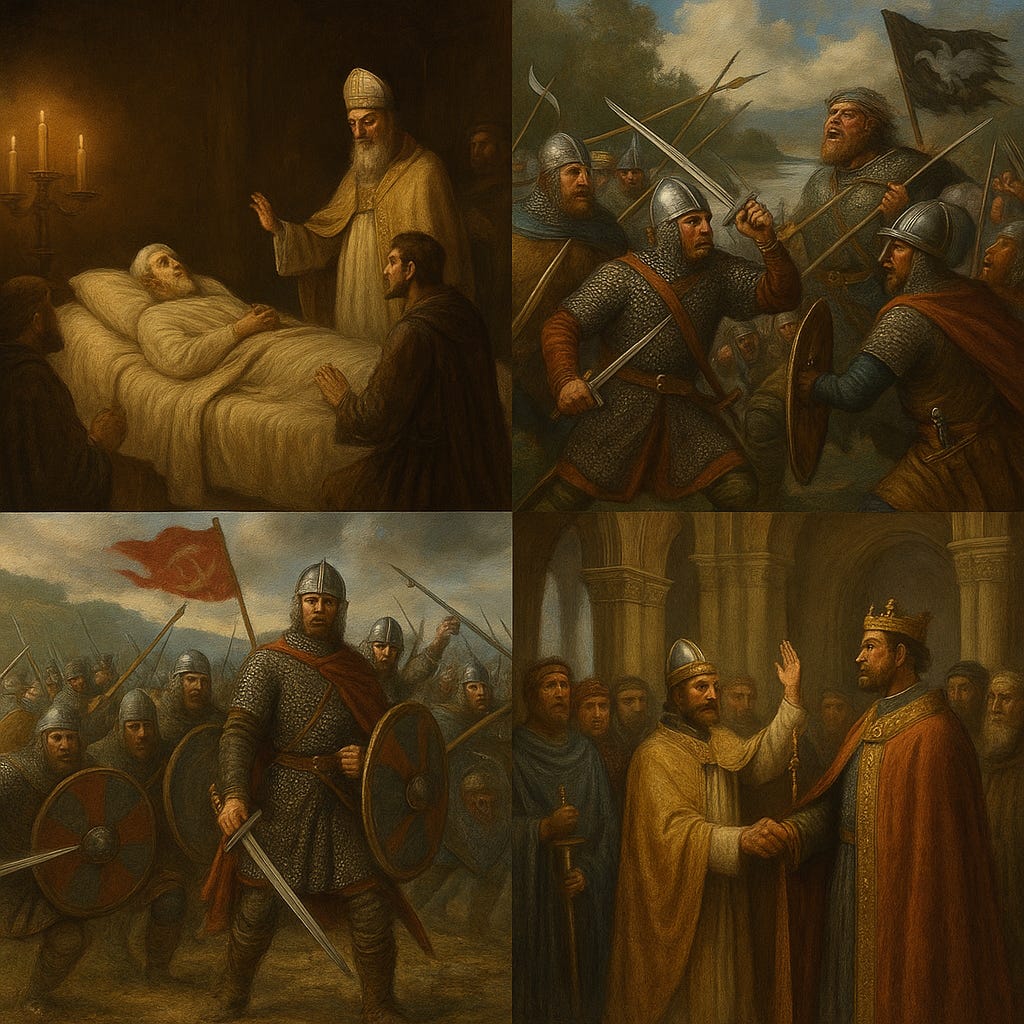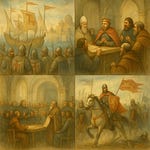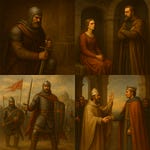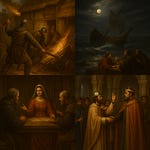England enters 1066 on a knife’s edge. Edward the Confessor’s death leaves no direct heir and four men with plausible claims. Edgar Ætheling, young and royal by blood but politically irrelevant; Harold Godwinson, the island’s most powerful earl, chosen by the Witenagemot; Harald Hardrada, the formidable king of Norway invoking an old Danish treaty; and William of Normandy, who insists Edward once promised him the throne—and that Godwinson himself swore to uphold it. Each believes the crown is rightly his, and each is willing to make war to prove it.
Godwinson inherits a kingdom caught between legacies. The Anglo-Saxon system prizes counsel, custom, and elective kingship through the witan; the Danish influence—after the recent Danish kings of England, Sweyn Forkbeard and Cnut the Great—has left behind a taste for centralized authority and a warrior’s code of loyalty. England in 1066 is not an isolated island; it is a northern kingdom, fluent in both languages of power.
In September, Hardrada lands in the north, joined by Godwinson’s exiled brother Tostig. The English army marches hard and wins decisively at Stamford Bridge, killing both Hardrada and Tostig. It’s a triumph, but one that drains men and strength. Three weeks later, William crosses the Channel, and Godwinson turns south to meet him at Hastings. There, after a day of grinding combat, the English shield wall finally breaks, and Godwinson falls—the last crowned Anglo-Saxon king of England, slain in the same season as the last great Viking.
My takeaway: 1066 closes one world and opens another. The deaths of Hardrada and Godwinson mark the passing of the old northern order—the shared Norse and Anglo-Saxon world of kinship, oath, and counsel. In its place rises a new structure, imported from Normandy and bound to France by blood, marriage, and feudal debt. This is not the end of England; it’s a new chapter where it is absorbed, redirected, and set on a path by the Norman conquerors. This will define its conflicts for centuries: kings ruling an island while expected to answer to the French king as vassals.












